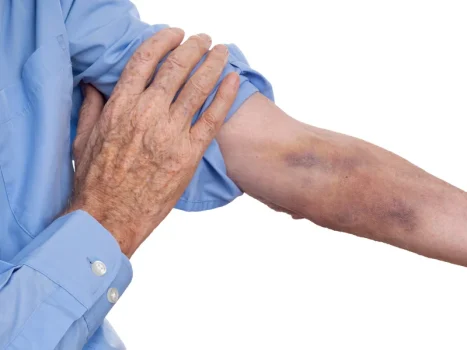
The knowledge that only 10% of heavy drinkers are alcoholic may be reassuring, but that doesn’t mean the other 90% aren’t have problems with drinking. There are a few methods available to measure chlorine in drinking water, but we will focus on the most common and user-friendly method – the use of test strips. These strips are designed to react with chlorine to produce a color change. The color can then be compared to a chart provided with the test strips to determine the chlorine content.
What does drinking alcohol do to your body?
- It’s called „low risk“ rather than „safe“ because there’s no safe drinking level.
- For example, if you are a functional alcoholic, while you might not drink every day, it could be to excess when you do drink.
- Comparing the emotions that come up when you have a drink with the feelings you experience when abstaining also helps you recognize when drinking doesn’t fix the problems you’re trying to manage.
- From this, the study’s authors concluded that while light drinking might have a modest protective effect for certain conditions among certain people, „Our results show that the safest level of drinking is none.“
- Regularly drinking more than 14 units of alcohol a week risks damaging your health.
For example, chlorine can fade clothes, dry out skin and hair, and deteriorate rubber seals in appliances, reducing their lifespan. An ORP meter, such as the one offered by Atlas Scientific, can provide real-time measurements of water’s oxidizing potential. This allows water treatment professionals https://ecosoberhouse.com/ to adjust chlorine levels precisely, ensuring optimal disinfection while avoiding excessive chlorination. This comprehensive guide will delve into all aspects of chlorine in drinking water, discussing its advantages, downsides, and frequently asked questions related to its use.
- Just one or two alcoholic drinks can impair your balance, coordination, impulse control, memory, and decision-making.
- They produce less of the enzyme (called alcohol dehydrogenase, or ADH) that breaks down alcohol.
- This simple, yet incredibly effective chemical compound has been the mainstay of water treatment for many decades, ensuring our tap water is safe to drink and use.
How Long After Drinking Can I Take Ibuprofen?
As evidenced by these recent reviews, the harms of daily alcohol consumption may outweigh the potential benefits in the long run. But what effects can you expect to experience if you have a nightcap (or two) can you be an alcoholic and not drink everyday every day? Read on to discover the little-known effects of what happens to your body when you drink alcohol every day. And for more, don’t miss 6 Incredible Effects Of Giving Up Alcohol for One Month.
Why smoothies might not be as healthy as you think
- Considering these factors, many homeowners are turning to home water treatment systems to remove chlorine from their water supply.
- That feeling of desperately needing water to help with a dry mouth after waking up from a night of drinking is due to dehydration.
- Despite the essential role chlorine plays in disinfecting water, it’s unnecessary once the water reaches your home.
But seven drinks in a day can lead to an inflammatory response that tips health in the other direction. Every day, billions of people worldwide consume tap water treated with chlorine. While this practice has significantly reduced the prevalence of waterborne diseases, it has also raised questions about potential long-term health effects. Then there’s the impact drinking regularly at home can have on your diet; you become more tired because you sleep more poorly after alcohol, drink less water, and often don’t feel like doing as much exercise. „This might lead to you putting on weight, which can lead to a build up of fat in the liver just like alcohol can, making the liver damage worse,“ says the doctor.
Is this content interesting for you?

This means that even after the initial treatment process, a small amount of chlorine remains in the water to prevent microbial regrowth as it travels from the treatment plant to your home. This is very important as it ensures that the water remains safe to drink even if it has to travel long distances. The importance of chlorine in water disinfection cannot be overstated. This simple, yet incredibly effective chemical compound has been the mainstay of water treatment for many decades, ensuring our tap water is safe to drink and use.

Examine alcohol health effects

A new study could change what’s considered moderate drinking
What happens to your body when you stop drinking?
- Your body breaks alcohol down into a chemical called acetaldehyde, which damages your DNA.
- The first one, published in The Lancet, included only people who drank at least some alcohol.
- Moderate alcohol consumption may reduce symptoms of type 2 diabetes by enhancing the uptake of blood sugar by your cells.
- Most glasses of wine contain roughly 120 calories and this on top of a regular day of calorie consumption can lead to weight gain.
- Alisa is DBT (Dialectical Behavior Therapy)informed and brings her expertise to the therapeutic setting.
Оставите одговор